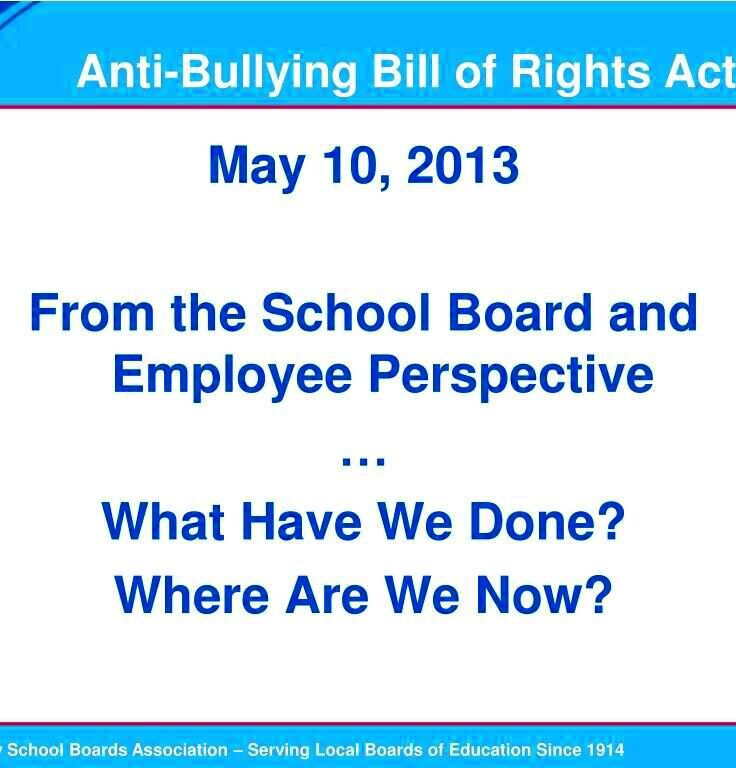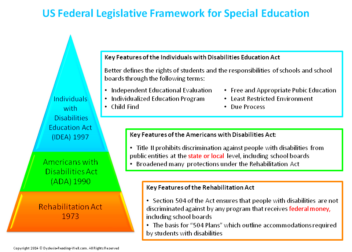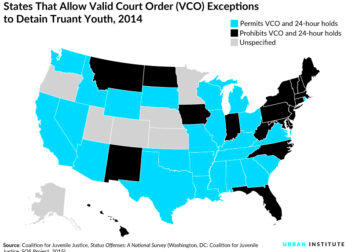New Jersey Bullying Law and Protecting Students’ Rights
New Jersey has taken significant steps to address bullying in schools. The state’s Anti-Bullying Bill of Rights aims to create a safe and supportive environment for all students. With growing awareness about the effects of bullying, New Jersey’s law emphasizes the need for schools to actively combat bullying behaviors. Understanding these laws helps students, parents, and educators work together to ensure a positive school experience.
Definition of Bullying Under New Jersey Law
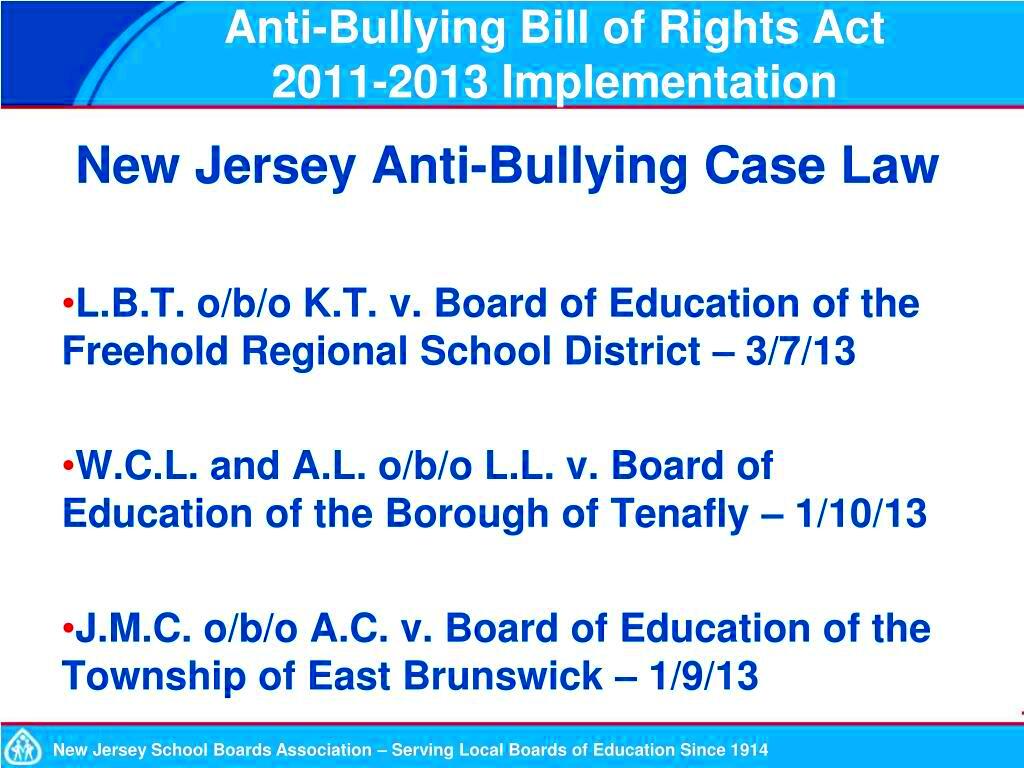
Bullying, as defined by New Jersey law, is a repetitive behavior that occurs in a school setting and involves:
- Physical Harm: Hitting, kicking, or any form of physical aggression.
- Verbal Abuse: Name-calling, threats, or derogatory remarks.
- Social Isolation: Excluding someone from groups or activities.
- Cyberbullying: Using electronic means to harass or intimidate.
For an act to be considered bullying, it must be directed at a student and have the intent to harm. This definition helps schools identify and address bullying behaviors effectively.
Key Provisions of the New Jersey Anti-Bullying Bill of Rights
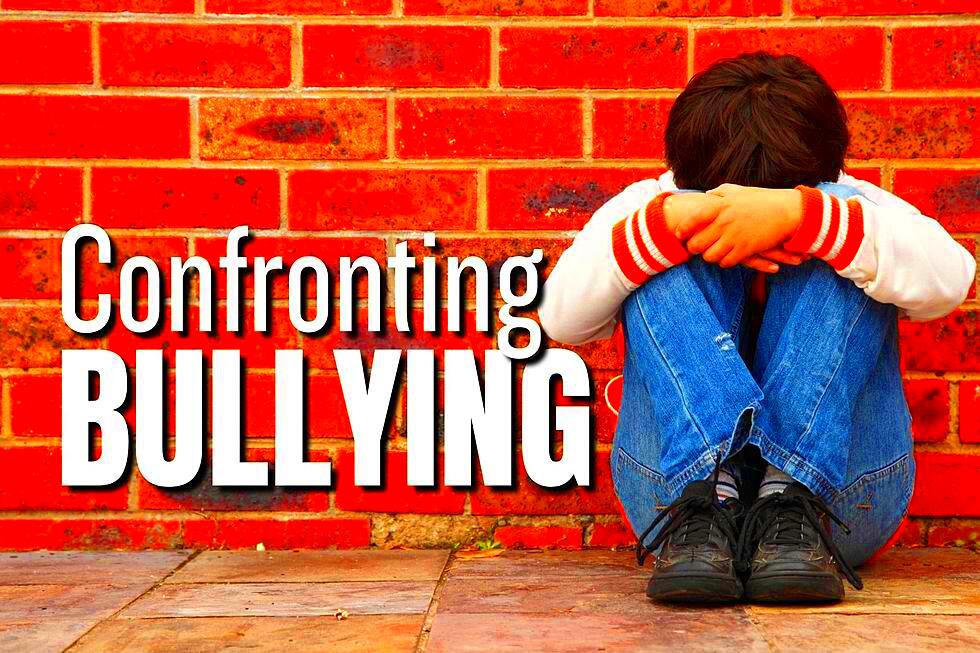
The New Jersey Anti-Bullying Bill of Rights includes several important provisions designed to protect students:
- School District Responsibilities: Schools must develop anti-bullying policies and appoint a dedicated anti-bullying specialist.
- Reporting Procedures: Clear guidelines for students and parents to report bullying incidents.
- Investigation Protocols: Schools are required to investigate all reported incidents within a specific timeframe.
- Protection for Victims: Measures must be in place to protect students who report bullying from retaliation.
- Training and Education: Ongoing training for staff and educational programs for students about bullying prevention.
These provisions ensure that schools take bullying seriously and work towards fostering a safe and inclusive environment for all students.
Responsibilities of Schools in Addressing Bullying
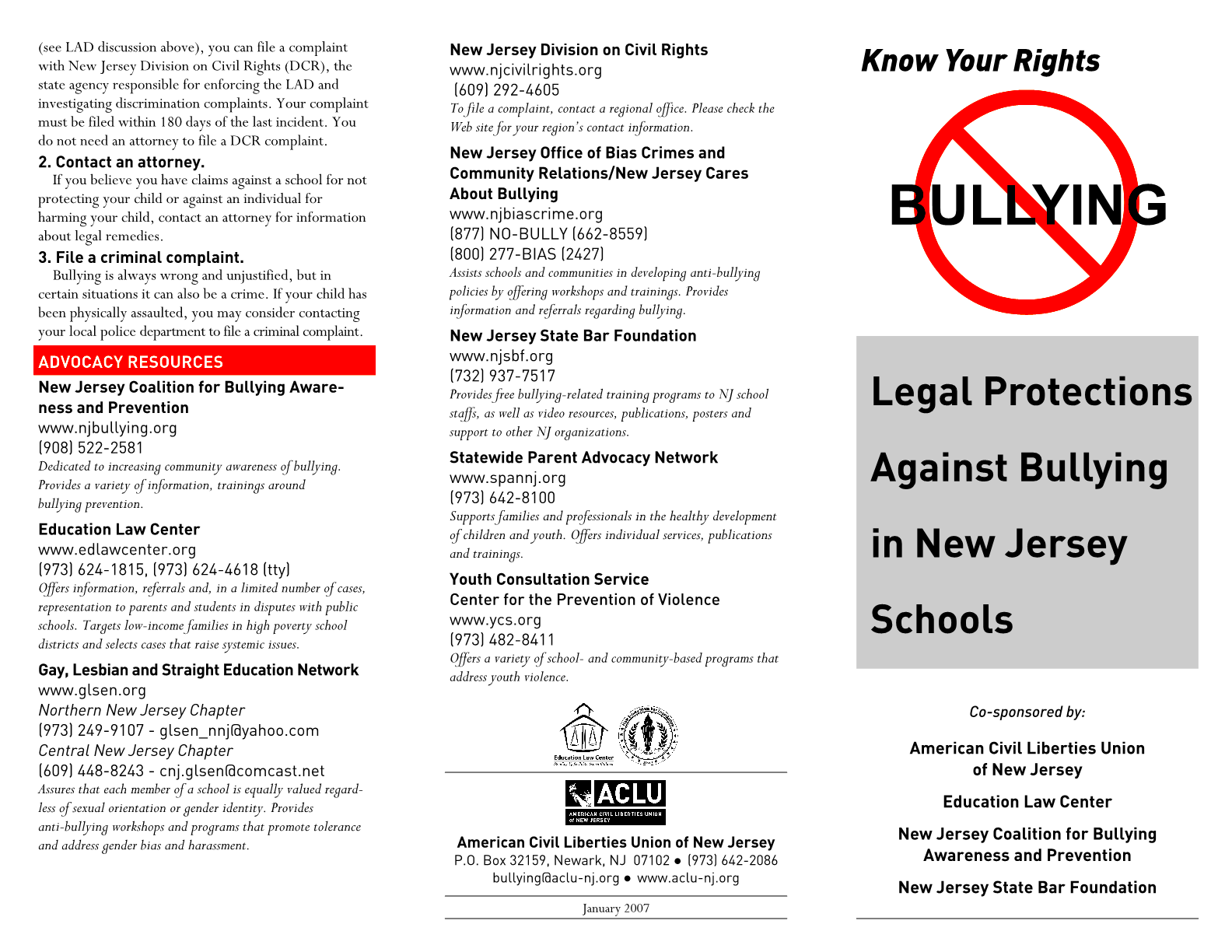
Schools play a crucial role in preventing and addressing bullying. Under New Jersey law, they have specific responsibilities to ensure a safe learning environment for all students. Here are some key responsibilities:
- Develop Anti-Bullying Policies: Schools must create and implement clear policies that define bullying and outline procedures for reporting and addressing incidents.
- Appoint Anti-Bullying Specialists: Each school is required to designate an anti-bullying specialist who oversees investigations and ensures compliance with anti-bullying laws.
- Provide Training for Staff: Ongoing training for teachers and staff is essential. They need to recognize signs of bullying and respond appropriately.
- Educate Students: Schools should conduct programs that educate students about bullying, its effects, and how to prevent it.
- Monitor School Climate: Regular assessments of school culture can help identify areas where bullying is prevalent and determine the effectiveness of current policies.
By fulfilling these responsibilities, schools can create a supportive atmosphere where students feel safe and valued.
Rights of Students and Parents
Students and parents have essential rights when it comes to addressing bullying in New Jersey schools. Knowing these rights can empower families to take action. Here are the key rights:
- Right to a Safe Environment: Every student has the right to attend school free from bullying and harassment.
- Right to Report Bullying: Students can report bullying incidents without fear of retaliation. Schools must have procedures in place for reporting.
- Right to Be Informed: Parents should be notified if their child is involved in a bullying incident, whether as a victim or a perpetrator.
- Right to Participate in Investigations: Parents can be involved in the investigation process and are entitled to updates on the outcome.
- Right to Seek Support: Families can access resources and support services provided by the school or community organizations.
Understanding these rights ensures that students and parents can advocate effectively for a safe school experience.
Reporting and Investigating Bullying Incidents
Reporting and investigating bullying incidents is a critical component of New Jersey’s approach to addressing bullying in schools. Here’s how the process typically works:
- Reporting Bullying: Students can report bullying to teachers, school counselors, or administrators. Schools must provide a safe and accessible way for students to report incidents, including anonymous reporting options.
- Documentation: When a report is made, school officials document all details, including the nature of the bullying, involved parties, and any witnesses.
- Timely Investigation: Schools are required to investigate reports within a specific timeframe, typically within 1-2 days. This ensures that issues are addressed quickly.
- Gathering Evidence: Investigators will interview the victim, the alleged bully, and any witnesses. They may also review physical evidence, like messages or social media posts.
- Outcome Notification: Once the investigation is complete, the school must inform the victim and the accused of the findings and any actions taken.
By following these steps, schools can ensure a fair and thorough process that protects students’ rights and addresses bullying effectively.
Consequences for Students Found Guilty of Bullying
When students are found guilty of bullying, it’s important for schools to impose consequences that address the behavior and promote accountability. New Jersey law outlines specific consequences, which may vary based on the severity and frequency of the bullying. Here’s what can happen:
- Verbal Warnings: In cases of minor bullying, a verbal warning may be given, reminding the student of appropriate behavior.
- Parent Notification: Schools are required to inform parents if their child is involved in bullying. This allows parents to take an active role in addressing the behavior.
- Detention or Suspension: More serious cases may result in detention or short-term suspension from school. This helps students reflect on their actions.
- Behavioral Intervention Plans: For ongoing issues, schools may develop a behavioral intervention plan, which outlines specific steps the student must take to change their behavior.
- Mandatory Counseling: In some cases, students may be required to attend counseling sessions to understand the impact of their actions and learn appropriate social skills.
It’s essential for schools to balance consequences with support, helping students learn from their mistakes while also ensuring a safe environment for everyone.
Resources and Support for Victims of Bullying
Students who experience bullying need access to resources and support to help them cope and recover. New Jersey offers various options for victims, including:
- School Counseling Services: Most schools have counselors trained to support students dealing with bullying. They provide a safe space to talk and develop coping strategies.
- Peer Support Programs: Many schools have peer mentorship programs that connect victims with supportive classmates who can relate to their experiences.
- Hotlines and Helplines: Organizations like the National Bullying Prevention Center offer hotlines where students can receive confidential support and advice.
- Online Resources: Websites provide information about bullying prevention, coping strategies, and ways to report incidents.
- Community Organizations: Local non-profits often provide workshops and resources for victims and their families, helping them navigate the challenges of bullying.
Having access to these resources can empower victims to seek help and reclaim their sense of safety and well-being.
Frequently Asked Questions
Here are some common questions about New Jersey’s bullying laws and what students and parents need to know:
- What should I do if my child is being bullied? Talk to your child and encourage them to report the bullying to a trusted adult at school. Keep a record of incidents and reach out to school officials for support.
- Can bullying occur outside of school? Yes, bullying can happen in various environments, including online (cyberbullying). Schools are still responsible for addressing bullying that impacts the school environment.
- What if my child is accused of bullying? Encourage your child to be honest and listen to the school’s investigation. It’s important to understand the situation and take appropriate steps to prevent future incidents.
- How can I support my child if they are a victim? Provide emotional support, listen to their feelings, and help them access school resources like counseling. Encourage them to stay connected with friends and engage in positive activities.
- Are there legal protections for students? Yes, New Jersey law provides protections for students against bullying. Schools are required to follow these laws to create a safe environment.
These FAQs help clarify the rights and responsibilities of students and parents regarding bullying in New Jersey schools.
Conclusion on Protecting Students’ Rights
Protecting students’ rights in the context of bullying is crucial for fostering a safe and supportive school environment. New Jersey’s laws aim to create a framework that not only addresses bullying but also empowers students and parents to take action. It is essential for schools to implement effective anti-bullying policies, provide adequate training for staff, and ensure that students feel safe reporting incidents. By promoting awareness and education, we can help prevent bullying and support victims in their recovery. Ultimately, when students’ rights are prioritized, everyone benefits from a more inclusive and respectful school culture.
